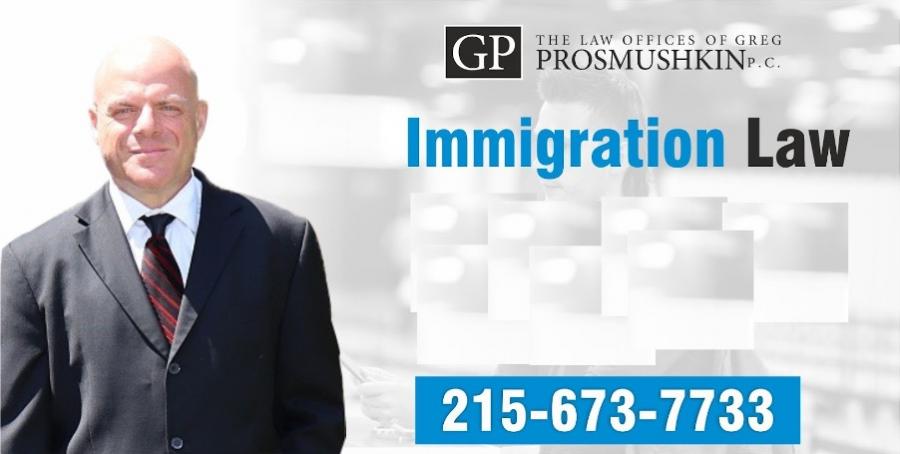Everything You Need to Know About Family-Based Immigration
A foreign citizen who plans to seek citizenship in the United States will require legal permission in the form of an immigrant visa. Each type of visa has its requirements and eligibility criteria. In this blog, we will discuss everything you will need to know about family immigration.
The process of getting an immigrant visa is more complicated than it may seem. Applicants are required to complete many documents and undergo specific tests to be eligible for an immigrant visa. Based on the most recent data available, the U.S. government will grant a maximum of 480,000 family-based visas each year. However, the global COVID-19 pandemic has brought changes to U.S. visa policies and the application process. This is why it is essential to consider the time required for applicants to invest and to become familiar with the process.
What is a family-based immigration visa?
Family-based visas are granted to people who share a close relationship with a U.S. citizen. If you are closely related to a U.S. citizen or permanent resident in the United States, they can sponsor you and help you get the visa. According to the Immigration and Nationality Act, almost any U.S. citizen or legal permanent resident of the country can sponsor a family member. An individual in the United States must be at least 21 years old to be eligible to sponsor a family member for a family-based immigration visa.
It is essential to note that you cannot petition for an immigration visa on behalf of your distant relatives. A family immigration lawyer can explain why certain U.S. citizens are unable to sponsor distant relatives’ visa applications. It is because visas are exclusively based on close family relationships. There are two different types of family-based immigrant visas:
Immediate relative: Immediate relative visas are reserved for people who share a close familial relationship with a U.S. citizen. The number of immigrants who may get a temporary relative visa is not limited.

Who can get an immediate relative visa?
● A spouse of a U.S. citizen
● A U.S. citizen’s unmarried children who are younger than 21 years old
● A parent of a U.S. citizen who is at least 21 years old
Family-preference visas: Family-preference visas are limited in number every year. These visas are designated for non-immediate familial relationships.
Who can get a family-preference visa?
● A U.S. citizen’s unmarried child who is 21 years of age or older
● A U.S. citizen’s sibling
● A U.S. citizen’s married child
What is the step-by-step process for getting a visa?
To acquire a visa, applicants are required to follow a lengthy and complicated procedure. These are the steps that you may have to follow to get your visa:
● The U.S. citizen files for an I-130 petition on the beneficiary’s behalf, if the beneficiary is outside the United States at that time. This petition should also include the supporting documents that prove the stated relationship between the U.S. citizen and beneficiary. If your relative is already in the United States, you can use Form I-485 for permanent residency or a green card.
● The U.S. citizen and the beneficiary wait for visa approval. After you submit your application, there is often a long wait before the U.S. government provides its decision. Based on the documents and the petition you submit, U.S. Citizenship and Immigration Services (USCIS) will either approve or deny the petition. If USCIS requires additional documents or information, they will contact the petitioner about that, as well. Because the process can be so long, it is important for applicants to actively follow and track the status of their petition. You can check the status of your application on USCIS’s website. The wait can be even longer for petitioners who are seeking family-preference visas on their relative’s behalf. The visa application’s overall time may depend on the relationship between the U.S. citizen and the intended beneficiary.
● Acquire an immigrant visa number if the application is approved. If USCIS has approved the visa application, you can now collect the immigrant visa from the U.S. Department of State. It is important to keep in mind that the visa will be valid for six months from the date of issuance.
The non-immediate relatives or family-preference relatives will need to check with the Department of State to determine whether the visa number is immediately available.
After this, the beneficiary must fulfill all stated requirements and have their visa stamped by the concerned authorities.
● Apply for a Social Security number. The person who is seeking U.S. citizenship is required to apply for a Social Security number after they enter the United States. All permanent U.S. citizens need a Social Security number. It legally allows them to work, conduct business, and file taxes in the country. The Social Security Administration’s website can provide more detailed information for beneficiaries.
Should you consult a professional for legal help?
Many people are often confused about whether they should hire a legal professional to help them navigate the family immigration visa process. It is essential to note that getting family-based sponsorship can be a challenge. Applicants have to consider many details throughout the process and satisfy numerous eligibility criteria. If you make a minor mistake, it could lead to the denial of your whole application. This is why experts suggest that you consult an experienced lawyer for legal help as you pursue a visa.
A reputable lawyer is familiar with the immigration law and can review your application and help ensure that you meet all of the eligibility criteria. Your lawyer can help determine whether the relative meets all of the USCIS conditions for a visa. In addition, lawyers can apply their strong understanding of the law and family-based sponsorships in strengthening your application.
Lawyers are knowledgeable about the procedure and the many factors that can potentially affect your application. For example, the person seeking U.S. citizenship should not violate any laws, or it may compromise their ability to secure a green card. If they have been convicted of a crime, their application may be denied. Applicants can get in touch with an experienced Philadelphia immigration lawyer for detailed information on what steps to take.
More to Read:
Previous Posts:







